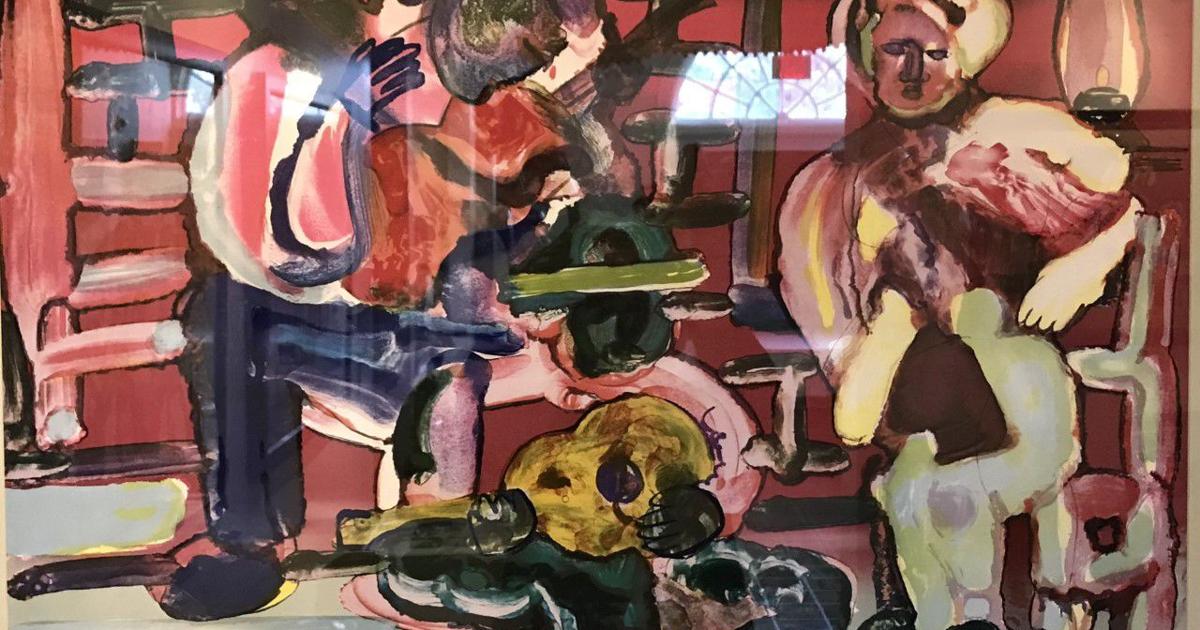Two Eyes Two Mouth
2015 - Painting (Painting)
41 x 42 x 8 cm
Erika Verzutti
Made in cast bronze, Two Eyes Two Mouths provokes a strong sense of fleshiness as if manipulated by the hand of the artist pushing her fingers into wet clay or plaster to create gouges that represent eyes, mouths and the female reproductive organ. Equally, there is a semblance of fruits—their succulence and fragility. While the work is sensual, the matte bronze surface refuses any expectation of softness. The sculpture was partly inspired by a viewing of a make-up tutorial, thus bringing into play an interest in make-up, disguise and the face as mask. Experimenting with the body, nature and our environment, Verzutti examines the aesthetics of our society. Through her use of textures, color, contour, weight and consistencies, the artist references the mid-twentieth century Brazilian movement Neo-Concretism to locate the temptation of sensuality, the coldness of brutality and the image of flesh in the landscape and in society.
Erika Verzutti (b. 1971, Sao Paolo, Brazil) is a sculptor of haptic floor standing and wall hung sculptures that refer to principally, the female body. Openings, organs and skin are references that recur throughout her work, while also remaining interested in recalling images the natural world, fruits, plants and trees to suggest a symbiosis between the two. The works often have a strong sexual content and suggest physical sensations and provoke fantasies. They are playful, ritualistic, fetishistic and inviting yet repelling touch at once and the same time. As José August Ribeiro has written on her work: ‘the work is succulent and acid sweet and sour and bitter, in several senses.’
Colors:
Related works featuring themes of: » Andes Region, » Collage, » Installation Art, » Multiple Styles, » Brazilian
» see more

© » KADIST
Clarissa Tossin
2017Clarissa Tossin’s film Ch’u Mayaa responds to Frank Lloyd Wright’s Hollyhock House (constructed 1919–21) in Los Angeles, an example of Mayan Revival architecture...

© » KADIST
Clarissa Tossin
2012In Fordlândia Fieldwork (2012), Tossin documents the remains of Henry Ford’s rubber enterprise Fordlândia, built in 1928 in the Brazilian Amazon to export cultivated rubber for the booming automobile industry...

© » KADIST
Runo Lagomarsino
2020Yo también soy humo (I am also smoke) is a 16mm film that has been digitized to video...

© » KADIST
Nicolás Paris
2012Nicolas Paris studied architecture and worked as an elementary school teacher before he decided to become an artist...
Other related works, blended automatically
» see more

© » KADIST
Clarissa Tossin
2017Clarissa Tossin’s film Ch’u Mayaa responds to Frank Lloyd Wright’s Hollyhock House (constructed 1919–21) in Los Angeles, an example of Mayan Revival architecture...

© » KADIST
Clarissa Tossin
2012In Fordlândia Fieldwork (2012), Tossin documents the remains of Henry Ford’s rubber enterprise Fordlândia, built in 1928 in the Brazilian Amazon to export cultivated rubber for the booming automobile industry...

© » KADIST
Bernardo Ortiz
2011Casa de la cabeza (2011) is a drawing of the words of the title, which translate literally into English as “house of the head.” Ortiz uses this humorous phrase to engage the idea of living in your head....

© » KADIST
Felipe Arturo
2012Defined as entropy, the second law of thermodynamics proposes that energy is more easily dispersed than it is concentrated...
Related works sharing similar palette
» see more

© » ARTSJOURNAL
Louvre To Hike Admission Price Ahead of 2024 Summer Olympics – ARTnews.com Skip to main content By Tessa Solomon Plus Icon Tessa Solomon Reporter, ARTnews View All December 11, 2023 2:57pm Tourists walk past the Louvre Pyramid, designed by Chinese architect Ieoh Ming Pei at the Louvre museum in central Paris on September 21, 2023...

© » KADIST
Walead Beshty
2010Black Curl (CMY/Five Magnet: Irvine, California, March 25, 2010, Fujicolor Cyrstal Archive Super Type C, EM No 165-021, 05910) is a visually compelling photogram...

© » KADIST
Dennis Adams
2002Observing the sky after 11 September 2001, Dennis Adams photographed elements which had been lifted by drafts and were floating above the city of New York...
Related artist(s) to: Erika Verzutti » Cildo Meireles, » Gabriel Sierra, » Hélio Oiticica, » Jorge Macchi, » Alberto Giacometti, » Alexander Schellow, » Amar Kanwar, » Andrew Carnegie, » Associação Cultural Videobrasil, » Aurélien Froment
» see more

© » KADIST
Cildo Meireles
1975Meireles, whose work often involves sound, refers to Sal Sem Carne (Salt Without Meat) as a “sound sculpture.” The printed images and sounds recorded on this vinyl record and it’s lithographed sleeve describe the massacre of the Krahó people of Brazil...

© » KADIST
Aurélien Froment
2008dbqp is a photographic series in which the artist handles an enlargement of the plate with three cutout windows which was used for L’Archipel (The Archipelago) in collaboration with Pierre Leguillon...

© » KADIST
Aurélien Froment
2008The Théâtre de poche video is inspired by Arthur Lloyd / “Human Card Index”, a magician who was famous for being able to take out of his pockets any image requested by his spectators...
Related works found in the same semantic group
» see more

© » KADIST
Michael Armitage
2015In “And so it is” shows the image of a faceless man before a microphone, ready to deliver an important message...





